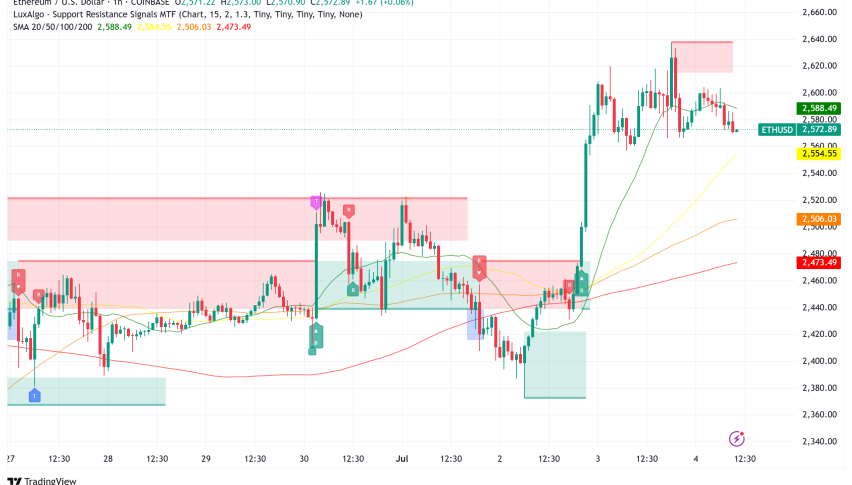Consensys Announces SEC Closes Ethereum 2.0 Inquiry: Key Takeaways
The U.S. Securities and Exchange Commission (SEC) has officially ended its investigation into Ethereum 2.0, as confirmed by blockchain

The U.S. Securities and Exchange Commission (SEC) has officially ended its investigation into Ethereum 2.0, as confirmed by blockchain firm Consensys.

This development is seen as a significant victory for Ethereum and the broader cryptocurrency community.
Here’s an in-depth look at the implications of this decision and what lies ahead.
SEC Closes Ethereum 2.0 Investigation
On June 19, Consensys announced via social media platform X that the SEC had closed its investigation into Ethereum 2.0. The firm, which had previously filed a lawsuit seeking an injunction against the SEC’s regulatory actions, sees this as a major win. Joseph Lubin, founder of Consensys and co-founder of Ethereum, expressed his satisfaction with the outcome.
In a significant development for the cryptocurrency market, the U.S. Securities and Exchange Commission (SEC) has decided to drop its investigation into #Ether and several major altcoins. This decision has led to a surge of optimism among investors and analysts, suggesting a… pic.twitter.com/sxm2bl1im6
— Block Byte (@Block24byte) June 21, 2024
“This decision marks a significant victory for Ethereum,” Lubin stated. However, he emphasized the need for continued vigilance. “While we welcome this development, it’s not enough. We must remain vigilant and continue advocating for clear and fair regulations that enable innovation to flourish.”
Ongoing Legal Efforts and Regulatory Landscape
Despite the SEC closing its inquiry, Consensys plans to persist with its lawsuit to obtain a court ruling that the SEC does not have the authority to regulate user-controlled software interfaces built on Ethereum or the Ethereum blockchain itself. This legal battle highlights the ongoing struggle between cryptocurrency firms and regulatory bodies over the scope and extent of regulatory oversight.
An SEC spokesperson declined to comment on the investigation, maintaining the agency’s standard practice of not confirming or denying the existence of inquiries. This lack of transparency often fuels uncertainty within the crypto industry, emphasizing the need for clear regulatory guidelines.
In a surprising turn of events, the SEC recently approved applications from Nasdaq, CBOE, and NYSE to list spot ether ETFs. This approval was unexpected by many in the cryptocurrency sector, who had anticipated a rejection. This decision is seen as a positive step towards mainstream acceptance and regulatory clarity for cryptocurrencies.
Future Implications for Ethereum and the Crypto Industry
The closure of the SEC’s investigation into Ethereum 2.0 is a milestone for Consensys and the Ethereum community. It removes a significant regulatory hurdle and allows the focus to shift towards further innovation and development within the Ethereum ecosystem.
However, the ongoing legal efforts by Consensys to limit the SEC’s regulatory reach underscore the broader challenges facing the cryptocurrency industry. The need for clear and fair regulations is paramount to ensure that innovation is not stifled by regulatory uncertainty.
SEC closed the book on its Ethereum 2.0 investigation, but legal questions remain#ethereum #ETH #tafouio #cryptonews pic.twitter.com/ejgH1jLGrC
— tafou.io (@tafouio) June 21, 2024
As the market continues to evolve, the relationship between cryptocurrency firms and regulatory bodies will be crucial in shaping the future of digital assets. The SEC’s recent approval of spot ether ETFs is a testament to the growing acceptance of cryptocurrencies in traditional financial markets.
In conclusion, while the closure of the SEC’s investigation into Ethereum 2.0 is a significant victory, it is not the end of regulatory challenges for the crypto industry. Ongoing advocacy for clear and fair regulations is essential to support the growth and innovation of blockchain technologies. The outcome of Consensys’ continued legal efforts will be closely watched and could set important precedents for the industry.
- Check out our free forex signals
- Follow the top economic events on FX Leaders economic calendar
- Trade better, discover more Forex Trading Strategies
- Open a FREE Trading Account


